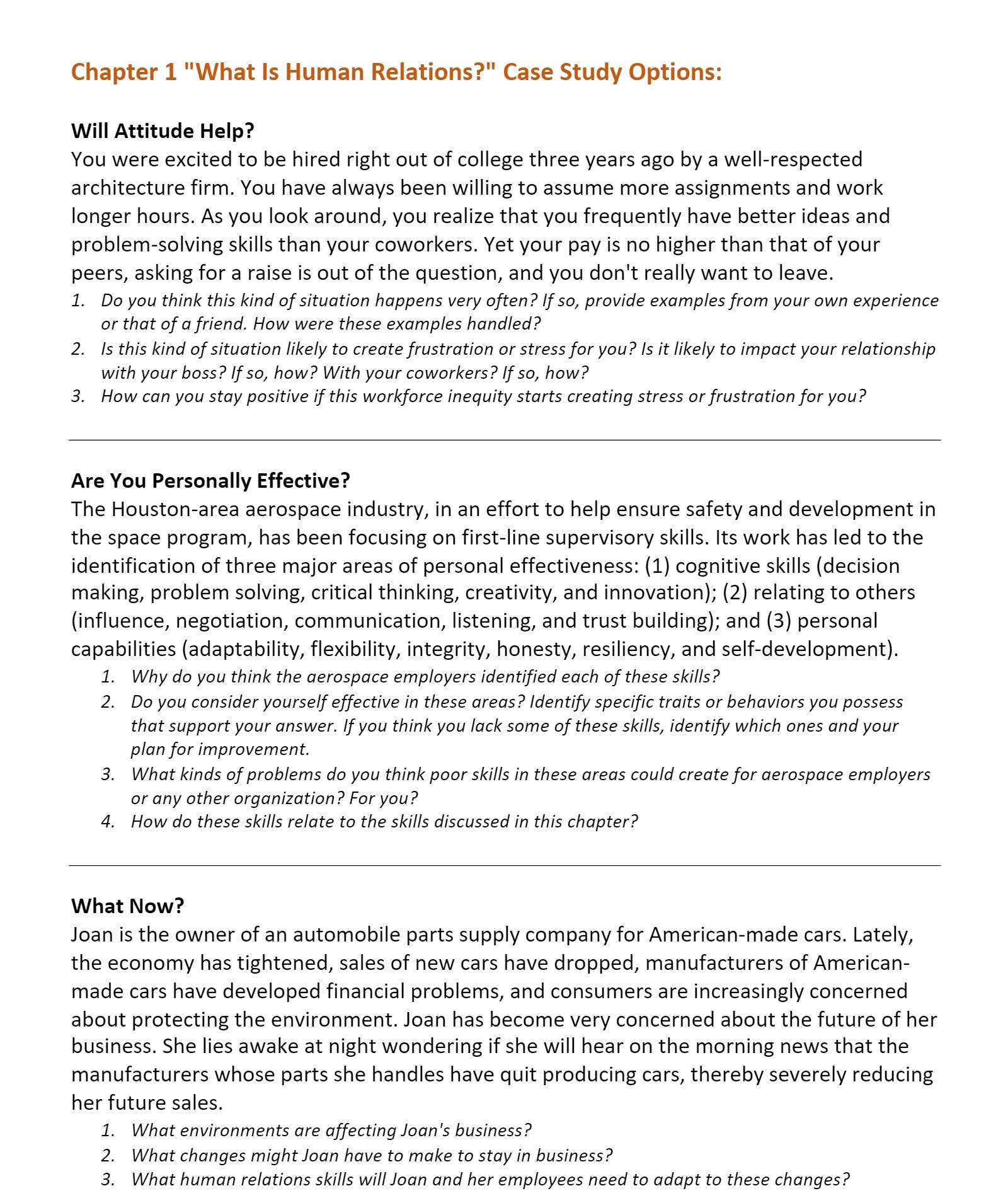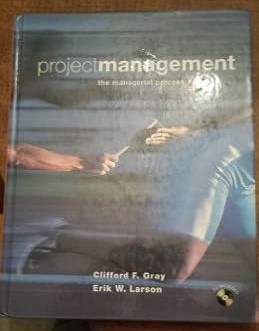Chapter 1 "What Is Human Relations?'I Case Study Options: Will Attitude Help? You were excited to be hired right out of college three years ago by a wellrespected architecture firm. You have always been willing to assume more assignments and work longer hours. As you look around, you realize that you frequently have better ideas and problem-solving skills than your coworkers. Yet your pay is no higher than that of your peers, asking for a raise is out of the question, and you don't really want to leave. 1. Do you think this kind of situation happens very often ? lfso, provide examples from your own experience or that of a friend. How were these examples handled? 2. is this kind of situation likely to create frustration or stress for you? is it likely to impact your relationship with your boss? lfso, how? With your coworkers? if so, how? 3. How can you stay positive if this workforce inequity starts creating stress or frustration for you? Are You Personally Effective? The Houston-area aerospace industry, in an effort to help ensure safety and development in the space program, has been focusing on first-line supervisory skills. Its work has led to the identification of three major areas of personal effectiveness: (1) cognitive skills (decision making, problem solving, critical thinking, creativity, and innovation); (2) relating to others (influence, negotiation, communication, listening, and trust building); and (3) personal capabilities (adaptability, flexibility, integrity, honesty, resiliency, and self-development). 1. Why do you think the aerospace employers identified each of these skills? 2. Do you consider yourself effective in these areas? identify specific traits or behaviors you possess that support your answer. if you think you lack some of these skills, identify which ones and your plan for improvement. 3. What kinds of problems do you think poor skills in these areas could create for aerospace employers or any other organization? For you? 4. How do these skills relate to the skills discussed in this chapter? What Now? loan is the owner of an automobile parts supply company for American-made cars. Lately, the economy has tightened, sales of new cars have dropped, manufacturers of American- made cars have developed financial problems, and consumers are increasingly concerned about protecting the environment. Joan has become very concerned about the future of her business. She lies awake at night wondering if she will hear on the morning news that the manufacturers whose parts she handles have quit producing cars, thereby severely reducing her future sales. 1. What environments are affecting Joan's business? 2. What changes might Joan have to make to stay in business? 3. What human relations skills will Joan and her employees need to adapt to these changes







